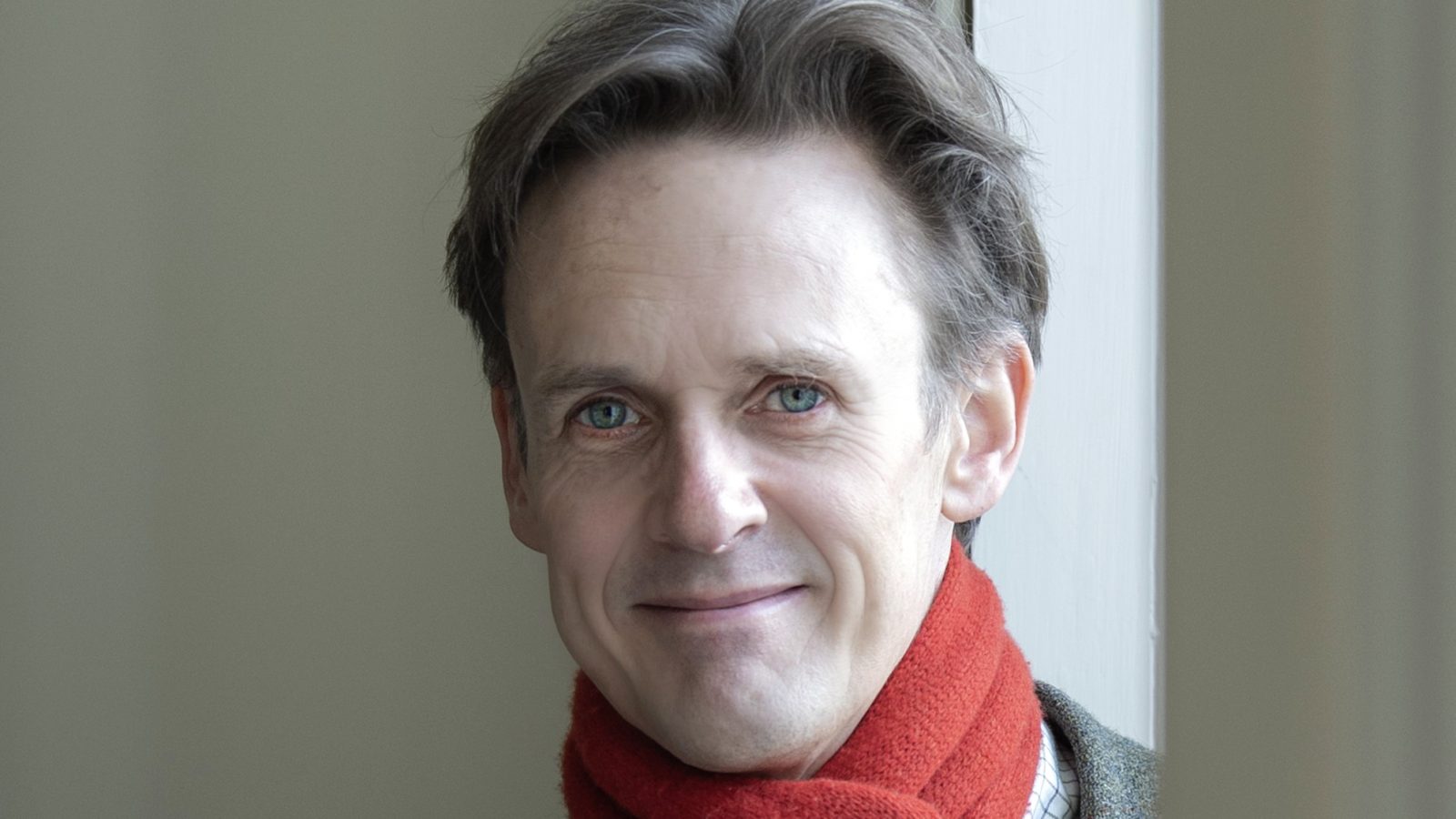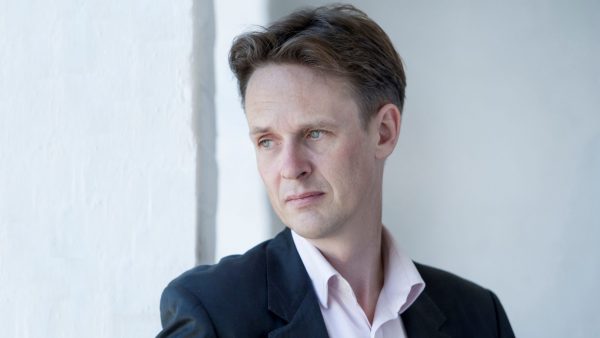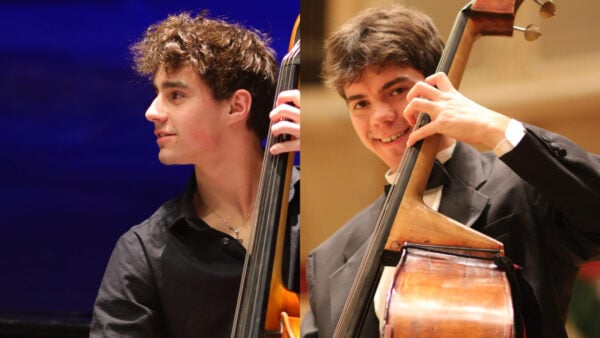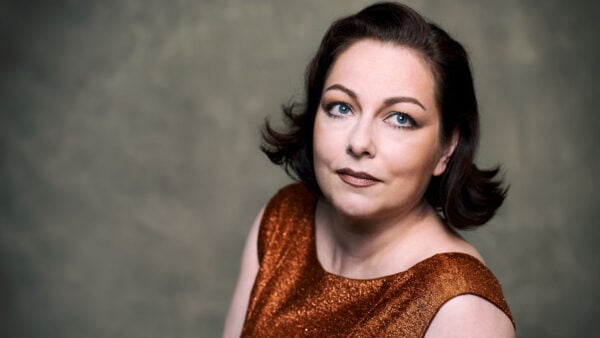
Ian Bostridge (Photo: Sim Canetty-Clarke)
What can music express that words cannot? This question intrigues esteemed tenor Ian Bostridge, whose “idiosyncratic vocalism, intense theatricality, and extreme musicianship” place him at the top of his field.
These queries make up the subject of a series of virtual lectures — and a virtual performance — that Bostridge will give at the University of Chicago this month. In a free, probing three-part lecture entitled “Musical Identities,” Bostridge examines the deeply communicative means of music to capture the otherwise indescribable phenomena of life: identity, existence, and death.
Then, in a virtual recital recorded in Wigmore Hall in London, Bostridge challenges the popular image of Beethoven as a fiery, tempestuous presence by drawing out other shades of the composer’s legendary personality.
WFMT general manager George Preston spoke with Bostridge ahead of this thought-provoking and comprehensive slate of programming.
George Preston: One thing that really strikes me is the lecture on identity and performance, because in many ways, classical music and opera are outmoded. But one characteristic in which classical music and opera have been ahead of the curve for a long time is gender fluidity. Specifically, in operas such as Marriage of Figaro and Rosenkavalier, you will have a woman playing a man who then dresses up again as a woman. Why did you choose this topic of identity for this lecture at this time? And are you thinking about it differently now that gender fluidity is topical in our broader culture?
Ian Bostridge: I wasn't really approaching it from that point of view, although it sort of occurred to me as I was writing it; perhaps I was behind the curve and not thinking of it in that place because it's become a big issue. I was more interested in identity in general and how you project identity in different ways as a singer. I think there's this big gulf set up between opera — which is acting — and recital work —which is singing — and never the twain shall meet. Whereas, in fact, they overlap far more.
I'm interested in the issue of what you're projecting as identity when you sing. It's interesting that there's a long tradition of women singing Lieder for male voices. Some great singers have not liked it. Dietrich Fischer-Dieskau complained about women singing Franz Schubert’s Winterreise. But we know from Schubert's own day that one of his female singer friends went through Die schöne Müllerin with him because there are notes on a score. We know that there's an early tradition of women singing Winterreise going through the 20th-century recordings.
It's this business of projecting a persona, and in that sense, the protagonist isn't really gendered at all. The most recent high-profile recording of Winterreise was from Joyce DiDonato, and she felt the need to give it a dramatic frame. She became a woman finding a man's diary and singing.
And then, there is Curlew River by Benjamin Britten. It's interesting talking about this gender fluidity and LGBTQ issues now. One of the problems with Britten criticism over the past 30 years is that Britten was gay in an age when homosexuality was illegal. After his death, his sexuality became something that could be discussed, and we started thinking that all his pieces are about homosexuality or sex, and they're not. That's part of what they're about. They're about a huge range of things.
In Curlew River, despite the fact that a man is assuming the character of a mother, gender is by-the-by really, and the only thing that the assumption of an alternative gender achieves is an intensification of that distancing effect. And what the distancing effect does for me is that in the long run, it allows for a much greater emotional intensity. If you front-load all the emotional intensity, you end up with a mush of sentimentality. But if you hold back, if you've got a man playing a mother, there’s something detached about it to begin with, but in the end, it is completely overwhelming.
Preston: An over-arching idea may be that music, compared to text or speech, is far less binary. There is a word, and there it sits on the page. But music has this ability to transcend the absolutes that usually come with language.
“Meditations on Death” is the final lecture. Death, of course, is a universal experience for all of us. But the impact of that has been brought home more keenly in the past year. Did the pandemic factor into your choice of lecture?
Bostridge: No, but in art, there are two things going on all the time. They are the desire to engage with what needs to be done in the world practically. The questions of, “How do we stop people dying? How do we stop people suffering? How do we feed people?” But then, on the other side, there's a sort of Samuel Beckett aspect of art, which is to interrogate what it is to be a human being, regardless of all these things. What is it to confront the ultimate loss of identity? How can we come to terms of the fact that there was a time when we weren't and that there's a time when we won't be again?
In a number of works of Benjamin Britten, right from the beginning of his career, he was dealing with this subject of confronting death in various ways and very often with something that came out of something political. The Holy Sonnets of John Donne came out of his visit to the Bergen-Belsen concentration camp in 1945. The War Requiem is partly to do with the First World War
Preston: Did Britten have a unique perspective on death? And why do you think that throughout his career, he focused on this? For Death in Venice, you can think well, he's an older man, he's sick. Of course, he's thinking about this then, but this was a through-theme for him.
Bostridge: I think by the time Britain was writing Death in Venice, he postponed having life-saving heart surgery, which, actually, in the end, wasn't lifesaving, it killed him. He postponed it in order to finish the opera. And if you just put yourself biographically into his mind, death would have been a really big thing on his mind in 1973. I think you see that in the opera. You see the way the figure of Death returns in a very chilling and uncanny way, which he even intensifies.
I think it's partly that music always deals with this because the Requiem is a form which people keep returning to. Everybody wants to write a Requiem because classical music engages with death in a way many other genres don't. I think Britten felt in a hurry as well, because he probably felt his own fragility from quite early on. I think his health was constantly under threat. He did die at 63 with his work unfinished. He was still composing at a level of extraordinary potency.
Ian Bostridge’s three-part lecture series “Musical Identities” and the accompanying recital are given in conjunction with the UChicago Humanities Division Berlin Family Lectures and the UChicago Presents concert series. They take place via streaming between Sunday, April 11 and Saturday, April 24. The lectures, which will be held on Zoom, are free of charge and open to the public; the concert is $15 and free for students of UChicago. This interview has been condensed and lightly edited for clarity.







